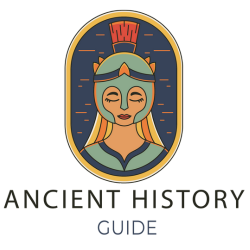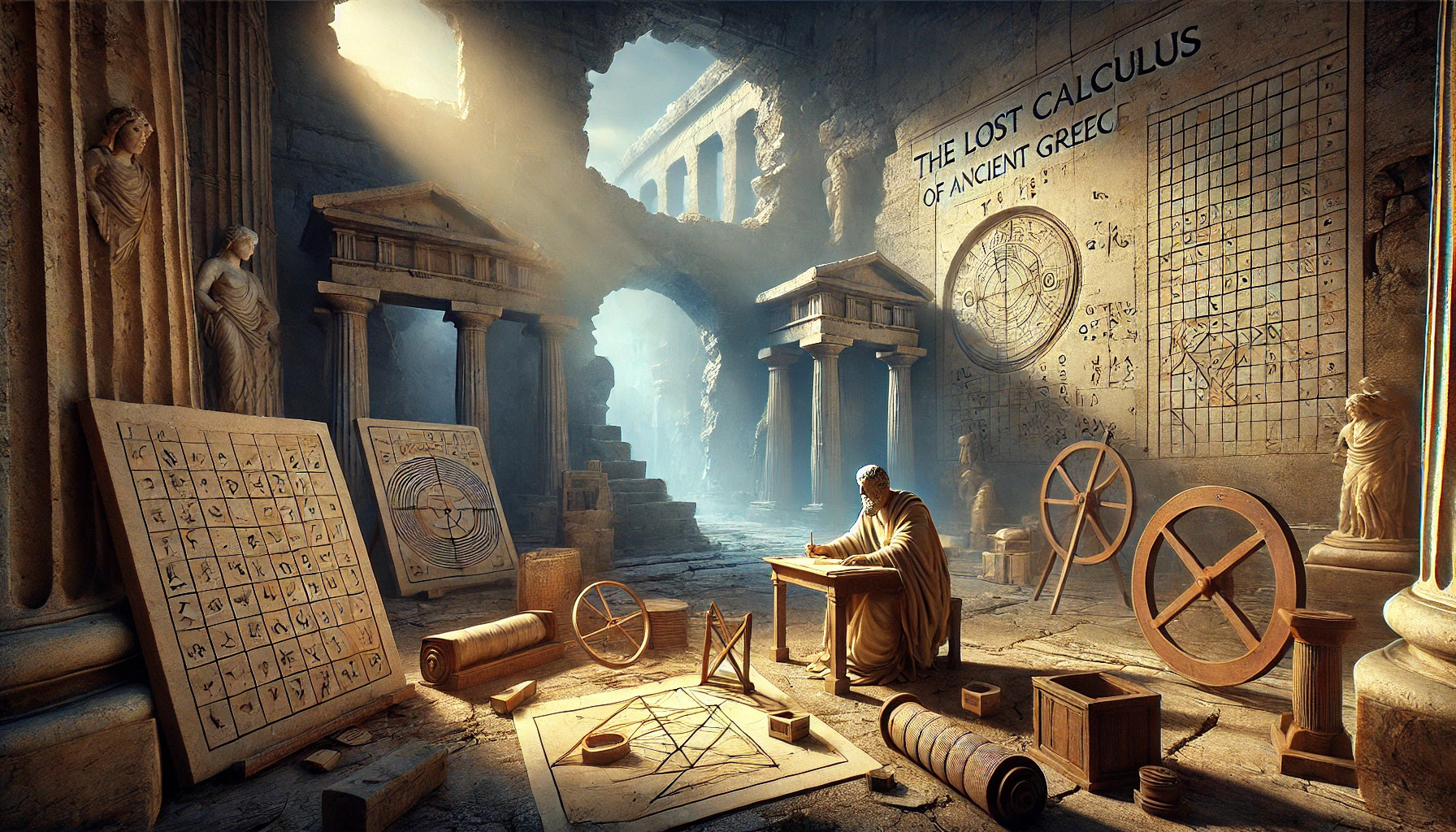The lost calculus of ancient Greece has been a topic of intrigue for scholars and history enthusiasts alike. The knowledge and techniques developed by ancient Greek mathematicians greatly influenced the foundations of modern science, yet much of this history has been forgotten or overshadowed. This erasure has shaped the way people view the evolution of mathematical concepts and their applications today.
While names like Euclid and Archimedes are often celebrated, their groundbreaking work on calculus remains less recognized. Understanding how these ancient thinkers contributed to mathematics can reveal the rich tapestry of knowledge that has been lost over time. Readers will discover how this historical erasure has impacted scientific development and what it means for our understanding of today’s math.
Exploring the story of ancient Greek calculus sheds light on the connections between past and present scientific achievements. By uncovering these lost ideas, current and future generations can appreciate the depth of knowledge that helped lay the groundwork for modern innovations. This blog post will take readers on a journey through history to highlight the significance of ancient contributions.
The Dawn of Mathematics in Ancient Greece
Ancient Greece is often considered the birthplace of mathematics. Its early scholars laid the groundwork for many concepts still used today.
Mathematics began around 600 BC with thinkers like Thales. He is known for using geometry to solve practical problems.
Next came Pythagoras, famous for his theorem about right triangles. His ideas about numbers and relationships significantly shaped future mathematicians.
In addition, Euclid wrote “The Elements,” a collection of definitions, postulates, and proofs. This work established a systematic approach to geometry.
Archimedes was another key figure. He made discoveries in areas like calculus, though it was not called that at the time. His methods would later influence many aspects of science and engineering.
These thinkers did not just solve equations; they paved the way for scientific thought. Their work inspired future generations, showing the importance of mathematics in understanding the world.
The impact of Ancient Greek mathematics is profound. It shaped various fields, from astronomy to physics, and influenced modern science in ways that are still felt today.
Archimedes and the Birth of Calculus
Archimedes played a crucial role in the early concepts of calculus through innovative techniques. His work laid the groundwork for integral calculus and challenged later mathematicians to expand on his ideas.
The Method of Exhaustion
The Method of Exhaustion is one of Archimedes’ most significant contributions. This technique allowed him to find areas and volumes of shapes that were difficult to measure directly.
By inscribing and circumscribing polygons around circles, he could calculate areas with more precision. For example, Archimedes showed that the area of a circle can be approximated by comparing it to polygons with many sides.
With this method, he calculated the value of π (pi) more accurately than anyone before him. This approach demonstrated early understanding of limits, a fundamental concept in calculus.
Infinitesimals and Their Controversy
Archimedes also explored the idea of infinitesimals, which are values that are extremely small but not zero. He used these tiny quantities to calculate areas and volumes, paving the way for future discussions about limits in calculus.
The concept of infinitesimals was controversial. Some mathematicians doubted their validity because they seemed to contradict established mathematical principles.
Yet, Archimedes’ work hinted at the usefulness of such small values. His ideas encouraged future thinkers, including Newton and Leibniz, to develop calculus further. Archimedes’ legacy continues to influence mathematics today.
Lost Knowledge and its Impact on History
Lost knowledge has significantly influenced the course of history. Major events, like the destruction of key libraries and the absence of historical records, have led to gaps in understanding. These losses have shaped modern science and philosophy in ways that remain evident today.
The Burning of the Library of Alexandria
The Library of Alexandria was one of the largest and most significant libraries in the ancient world. It is believed to have housed hundreds of thousands of scrolls containing vast knowledge.
The exact details surrounding its destruction remain unclear. Some suggest it was destroyed in a series of events over centuries, involving fires and wars. Each time knowledge was lost, it set back advancements in science and philosophy.
The loss of this library meant that many early works were never recovered. Ancient scholars like Euclid and Archimedes had influential writings stored there. Without these texts, later thinkers struggled to build on previous ideas.
Historical Accounts and Archaeological Evidence
Archaeological evidence suggests that much knowledge from ancient civilizations has vanished. Historical records indicate that many cultures, such as ancient Greece and Mesopotamia, had advanced understanding of technology and mathematics.
Studies show that mathematical practices from Ancient Greece were foundational for later developments in calculus. However, without complete documentation, tracing these ideas becomes challenging.
Lost writings and texts, like those of Plato, could have changed the course of thought. Many important works remain lost, leading to incomplete narratives in history. Discovering these texts might reshape current understandings of ancient science.
This gap influences how history is taught and understood today, showing the pressing need for preservation and recovery of lost knowledge. The impact of these losses continues to prompt curiosity and research in the present.
Recovery and Reconstruction Efforts
Efforts to recover and reconstruct the lost calculus of Ancient Greece focus on translating ancient texts and employing modern techniques to piece together mathematical concepts. These initiatives aim to understand the lost knowledge that could have advanced human progress.
Translating Ancient Texts
Translating ancient texts is crucial for uncovering the mathematics used in Ancient Greece. Scholars work on fragments of writings from philosophers like Archimedes and Euclid. They use skills in linguistics and mathematics to decode complex symbols and ideas.
One famous work, “The Method of Archimedes,” provides insights into his understanding of infinitesimals. Translators collaborate with historians to ensure accurate context and meaning.
Many texts have survived only in incomplete forms, which presents unique challenges. Researchers often compare different versions and rely on footnotes from later scholars to fill gaps.
Modern Reconstruction Techniques
Modern reconstruction techniques leverage technology to visualize ancient concepts. Computer software now helps recreate diagrams and calculations lost in history.
By using algorithms, mathematicians explore how ancient Greeks might have solved problems. Simulation tools allow them to test hypotheses and validate lost approaches to calculus.
Collaborative projects often include experts from multiple disciplines, such as history, mathematics, and computer science. This teamwork facilitates comprehensive research and a deeper understanding of the ancient mathematical landscape.
The blending of ancient texts with modern tools provides valuable insight into how early thinkers shaped mathematical principles that are still relevant today.
Influence on Modern Mathematical Theories
Ancient Greek mathematics laid the groundwork for modern theories. The revival of calculus in the Renaissance showcased this influence, alongside the foundations for contemporary scientific thought.
Calculus’ Revival in the Renaissance
During the Renaissance, scholars began rediscovering ancient Greek texts. This sparked a renewed interest in mathematical concepts, including calculus.
Key Figures: Important thinkers like Galileo and Descartes built on concepts from Greek mathematics. They examined motion and change, which are central ideas in calculus.
As a result, they developed tools and ideas that paved the way for future mathematicians. This revival demonstrated how ancient knowledge could drive new discoveries in mathematics, setting the stage for modern calculus.
Foundations of Modern Science
The structured thinking of Greek mathematicians influenced modern scientific methods. Their work emphasized proof and logical reasoning.
Important Contributions:
- Euclid’s Elements: This text established principles that are still taught today.
- Eudoxus’ Method of Exhaustion: This concept laid groundwork for integration in calculus.
These elements were crucial in moving science forward. Figures like Newton and Leibniz, who formalized calculus in the 17th century, built upon this ancient knowledge, proving its lasting impact.
Comparative Analysis: Ancient vs. Modern Methods
Ancient and modern methods of problem-solving have distinct characteristics. These differences can illuminate how mathematics has evolved over time. The following sections explore methodologies in problem-solving and the contrasting approaches of geometry and algebra.
Methodologies in Problem Solving
Ancient Greeks used geometric methods for problem-solving. Their approach relied on visual representation and logical reasoning. For example, they often solved problems through constructions with a compass and straightedge.
In contrast, modern methods lean towards algebraic techniques. These help to simplify complex problems using variables and equations. For instance, instead of constructing shapes, modern mathematicians might use algebraic formulas to find areas or volumes.
The transition from geometric to algebraic methods has enhanced efficiency. This shift allows faster calculations and the ability to tackle more complex problems.
Geometric versus Algebraic Approaches
Geometric approaches were prevalent in ancient mathematics. Greeks like Euclid focused on deductive reasoning to establish truths based on premises. They valued exactness in measurement and visualization.
Modern algebraic approaches focus on manipulation of symbols. Mathematicians use variables to represent numbers and relationships. This method is versatile and can be applied across various fields.
While geometry remains fundamental, algebra provides powerful problem-solving tools. Both methods have unique advantages. Understanding these can provide insights into the development of mathematical thought.
Educational Insights
Integrating concepts from the lost calculus of Ancient Greece can enhance mathematics education. It allows students to connect historical knowledge with modern practices. This approach can deepen understanding and foster appreciation for the evolution of mathematical thought.
Integrating Historical Calculus into Curricula
Teachers can enrich their math programs by introducing the historical context of calculus. By discussing the work of Ancient Greek mathematicians like Eudoxos and Archimedes, students can see the foundations of modern mathematics.
Including ancient methods such as the method of exhaustion can help students grasp complex topics. Practical activities could involve calculating areas using these ancient techniques.
This integration encourages critical thinking and shows students the importance of historical development in math. It helps students realize that math isn’t just about numbers; it’s a story of human progress.
Philosophical Implications for Teaching Mathematics
Discussing the philosophical aspects of mathematics can transform the classroom atmosphere. It encourages students to ask questions about why mathematics matters in the real world.
Exploring the ethical implications of knowledge loss, such as the erased calculus, can spark engaging discussions. Students can reflect on how historical contexts shape current mathematical practices.
Encouraging this kind of dialogue cultivates a deeper understanding of the subject. It helps students appreciate how calculus was not only a tool but also a product of human thought and culture.
Preserving Mathematical Heritage for Future Generations
Preserving the mathematical achievements of ancient Greece is crucial for educating future generations. This involves both engaging the public through exhibitions and ensuring that historical documents are digitized for wider access.
Museum Exhibitions and Public Engagement
Museum exhibitions play a key role in showcasing the rich history of Greek mathematics. They bring ancient artifacts, manuscripts, and interactive displays to life, making history accessible and engaging.
Visitors gain insights into mathematical inventions like geometry and early calculus. Through workshops and guided tours, learners of all ages can participate in hands-on activities that connect them to the past.
By organizing lectures or events with mathematicians and historians, museums create opportunities for deeper conversations about the importance of this knowledge. These efforts foster a community that values the heritage of mathematics.
Digital Archiving and Access
Digital archiving is transforming how mathematical history is preserved. With many ancient texts now digitized, scholars and enthusiasts can access vital resources from anywhere in the world.
Digital libraries host scans of original manuscripts, while online databases compile research about these texts. This accessibility allows for broader educational opportunities and encourages collaboration among researchers.
Moreover, social media and online platforms help share discoveries and engage a global audience. By using technology, the mathematical achievements of ancient Greece can be preserved and appreciated for generations to come.

